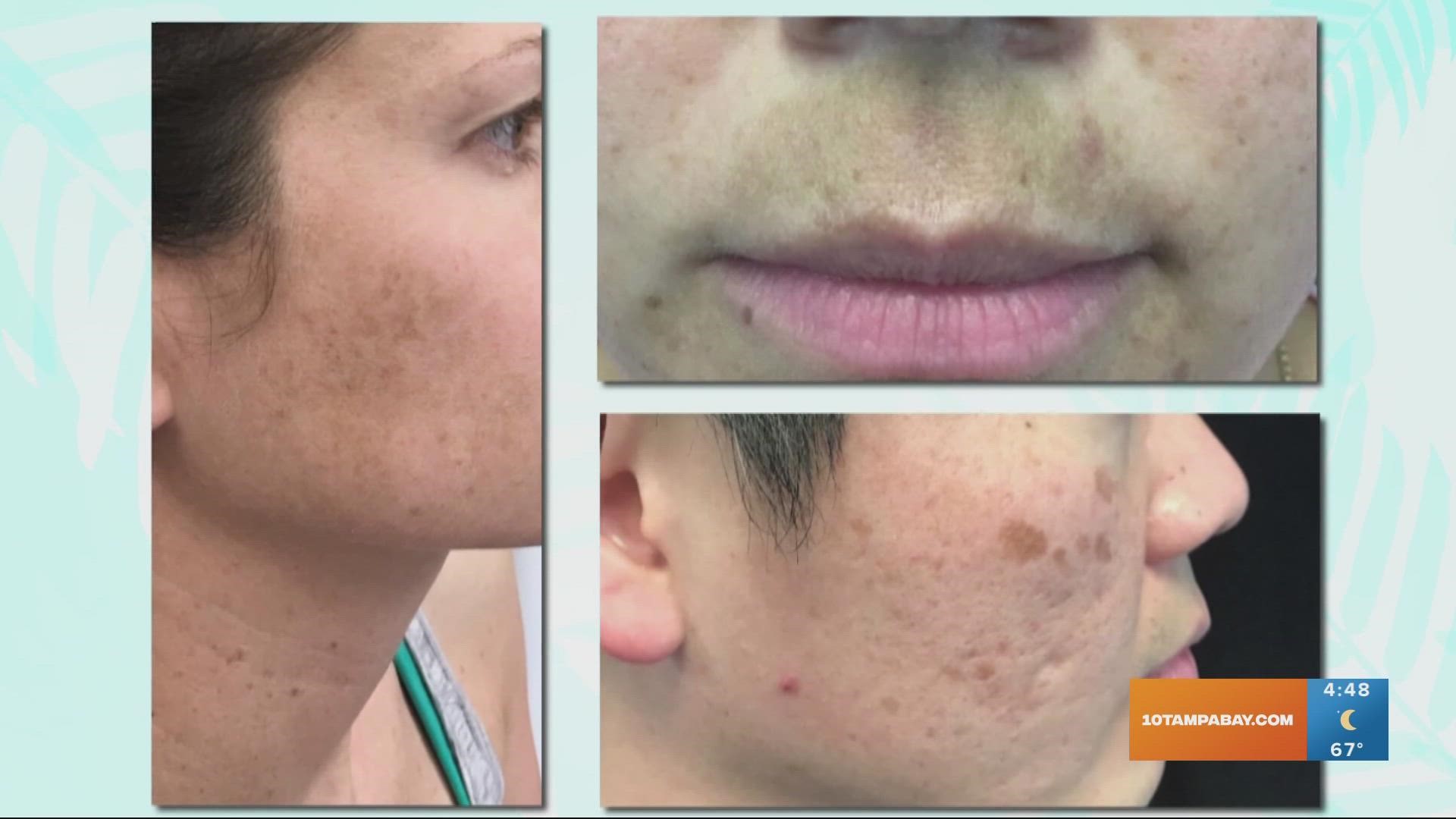ST. PETERSBURG, Fla. — Are you dealing with dark spots on your skin? Hyperpigmentation can be linked to several sources and Dr. Priya Nayyar, dermatologist and founder of Dermaclinique says to even begin to tackle the problem, you need to find the root source.
“First you really want to assess, well what’s causing the dark spots.” She says from acne to psoriasis, hormonal changes or the use of medication, a dermatologist can help pinpoint the problem and determine the right course of action to address it.
Dr. Nayyar says, no matter what that looks like, it will always start with SPF.
“Sun protection is number one, two, and three in the treatment. You want to wear a broad-brimmed hat, SPF 30 or higher, rash guards or UV-protecting clothing, that’s really going to be the most helpful thing you can do to reduce your dark spots,” she explains.
Dr. Nayyar says from the darkest to fairest complexions, “melasma can be seen in all skin types and sunscreen is very important, regardless of your skin type, when it comes to treating that condition.”
If you’re looking for over-the-counter products, she suggests topical retinoids and hydroquinone-based products.
“You can also have topical products that are containing tranexamic acid or alpha and beta hydroxy acid such as kojic acid, [and] glycolic acid. Those are all ingredients you’ll look for when you want to do lightening of dark spots,” Dr. Nayyar explains.
A dermatologist can prescribe a higher-strength option and help eliminate medications that may be contributing to the issue.

